Q: What is an externally-led Patient-Focused Drug Development (PFDD) Meeting?
A: PFDD meetings integrate patient insights into the drug development process. Following the successful model that the FDA developed to host similar meetings, the day will focus primarily on a range of patient viewpoints on Charcot-Marie- Tooth (CMT), covering the symptoms and impacts to daily life that are most important to patients and their perspectives on existing and future treatments. This input can help inform the FDA’s decisions and oversight during drug development and the review of marketing applications for new drugs.
Q: What is the format of the meeting?
A: The agenda will consist of speakers who will educate the FDA about CMT. In addition, there will be patient testimonials throughout the day to give the FDA an insider glimpse of the challenges patients face daily. This groundbreaking meeting will include facilitated discussions designed to provide the FDA with perspectives from people with CMT. It will also include caregivers, advocates, and all stakeholders who are part of the drug development continuum.
Q: Why is it important to educate the FDA?
A: With the first-ever CMT clinical trials already in late stages and more clinical trials on the horizon in 2018, we must take action now. Our goal is to educate the FDA and other stakeholders in the drug development process on the impact that CMT and other related inherited neuropathies have on quality of life for patients and families. We also seek to, as well as highlight what matters most to patients. This will impact clinical trial design, biomarkers, and improved outcome measures. It is also critical that we document the impact new therapies may have on mortality rates, comorbidities and disease severity.
Q: What are biomarkers?
A: Short for biological marker, a biomarker is something that can be measured to advance specific applications for diagnosing and/or predicting therapeutic response to a treatment. The biomarker helps to determine the presence of progression or improvement of a disease or disorder in the response to a treatment.
Q: What are outcome measures?
A: An outcome measure is the result of a test or tests that are objectively used to determine the baseline function of a patient at the beginning of a treatment. Throughout the clinical trials process, the same tests can be used to determine progress and treatment efficacy.
Q: What are comorbidities?
A: Comorbidities are the simultaneous presence of two or more diseases that typically are a result of, or strongly related to the primary disease which in our community is CMT.
Q: Who should attend the PFDD Meeting?
A: All CMT community members should join us either in person or by webcast to strengthen our impact on the FDA. This opportunity offers patients a birdseye view of HNFs research initiatives, and the impact and importance of bringing the patient’s voice to the forefront of therapy development.
Q: How can I contribute to the meeting and mission?
- You can network and speak with fellow members of the CMT community through our interactive sessions to share your challenges to FDA officials and other stakeholders.
- You can submit your story for consideration to present at the meeting. A powerful and personal testimony will help us reach our goals. Travel and hotel expenses will be provided.
- You can contribute by sponsoring our Patient Focused Drug Development Fund. Your contribution will be tax deductible.
- We are developing a “Sentiment Wall”, and we want to hear from you! These sentiments will be displayed at the meeting (First name and last initial only)— another way to show FDA officials and other key officials the impact of CMT on so many lives.
EMAIL [email protected]
CONTRIBUTE: HTTPS://WWW.HNF-CURE.ORG/CMT-PATIENT-FOCUSED-DRUG-DEVELOPMENT-MEETING/SPONSORSHIP/
LEARN MORE: HTTPS://WWW.HNF-CURE.ORG/CMT-PATIENT-FOCUSED-DRUG-DEVELOPMENT-MEETING/





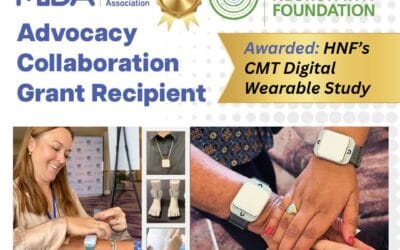
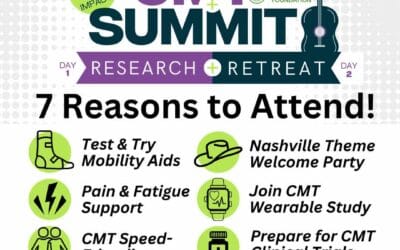
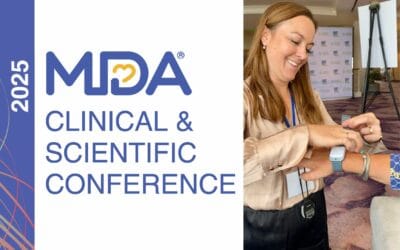

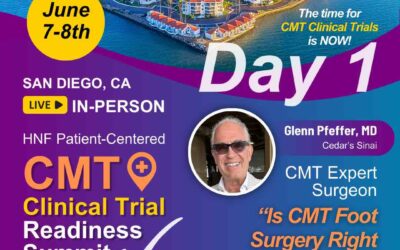
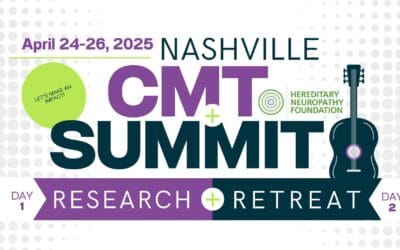
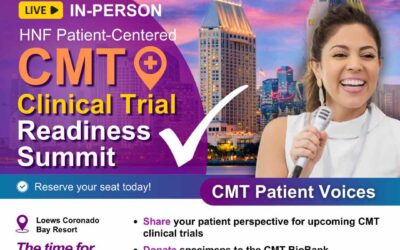



0 Comments